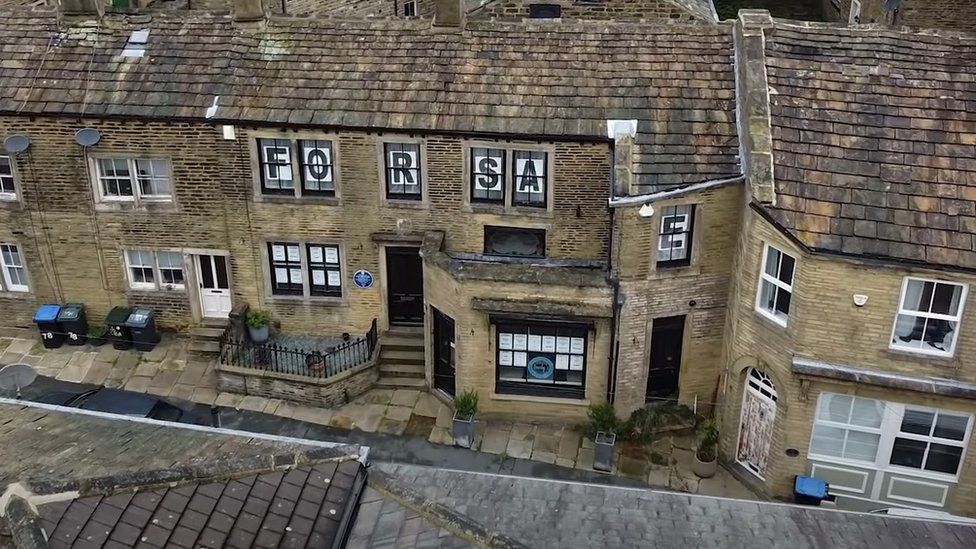Brontë sisters' birthplace 'saved for future generations' by funding
- Published

The Brontë sisters lived in the house as young children before moving to Haworth
The house where the Brontë sisters were born has been "saved for future generations" after receiving government funding, campaigners have said.
Literary sisters Charlotte, Emily and Anne Brontë were born in the terraced house in Thornton, near Bradford in West Yorkshire, between 1816 and 1820.
The building is among dozens of historic and community buildings that will share a £25m "levelling up" fund.
The £240,000 grant will mean it can be refurbished and opened to the public.
The house had previously been in private hands but now will become a "community events space" that will "improve social cohesion and boost local tourism", the Department for Levelling Up, Housing and Communities (DLUHC) said.
Steven Stanworth, vice chair of Brontë Birthplace Limited, said the funding was "fantastic news" and would mean it could open in time for Bradford's year as UK City of Culture in 2025.
'Inspire the next generation'
"This has been a 20-year dream to save the birthplace, the missing piece of the jigsaw in the story of the Brontë sisters," he said.
"For the first time, the little terraced house will be in public ownership."
Brontë Birthplace Limited, a not-for-profit community benefit society, had already raised £367,000, including a grant from the City of Culture, to buy and begin work on the property.
Broadcaster Christa Ackroyd, a committee member, said they aimed to "use this little building to inspire the next generation" by welcoming children from every school in the district.
In 1820, the Brontës moved from the house to the parsonage in Haworth, where the sisters wrote masterpieces including Emily's Wuthering Heights and Charlotte's Jane Eyre. That former family home has been a museum for almost a century.
More than 70 more buildings will receive money from the latest round of the DLUHC's Community Ownership Fund. Some of the others include:
Wolverhampton Grand Theatre - £2.05m to buy and redevelop a next-door building to turn it into an adjoining venue
Edinburgh's King's Theatre - £2m towards a regeneration project after it was threatened with closure
Old Clyne School in Brora in the Scottish Highlands - £1.95m to become a visitor attraction and community museum
Jacobs Wells Baths in Bristol - £1.05m to create a space for performances, youth services and community activities
The Generator Hall in Loughborough - £700,000 to help become an arts, culture and event venue
The Old Town Quarry in Weston-super-Mare - £699,992 to also be an arts and culture venue
- Published16 October 2023